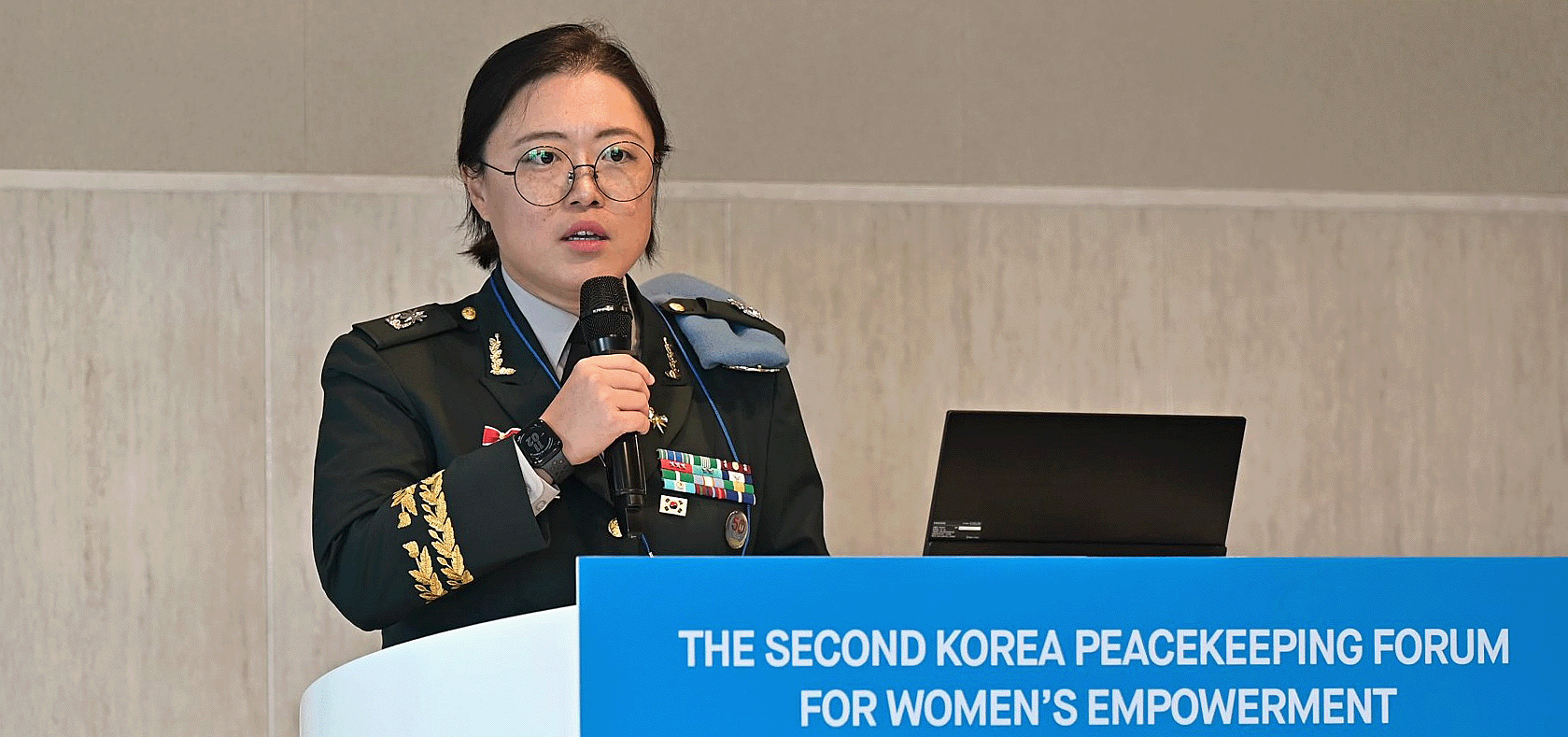In the Words of Sungyeon Yi: “Women’s challenges in peacekeeping are everyone’s issue.”
Date:

Lieutenant Colonel (S) Sungyeon Yi is a liaison officer with UNDOF in the Golan Heights and has extensive experience in UN peacekeeping operations, including UNIFIL, UNMOGIP, UNMISS, and UNDOF. Commissioned in 2006 as an Intelligence Officer in the Republic of Korea Army, she has served in various roles ranging from tactical to strategic levels, including as an Analyst, Company Commander of field units, and Desk Officer at the Korea Defense Intelligence Agency. In recognition of her continuous dedication to the peacekeeping efforts of the Republic of Korea, Yi was recently selected for promotion to Lieutenant Colonel.

My first deployment in 2012 with UNIFIL, following my time as a company commander on the Korean Peninsula’s front lines, felt like a unique, one-time experience. But in 2014, a year after my tour, General Kristin Lund became the first woman Force Commander in Cyprus, breaking barriers in UN peacekeeping. I proudly consider myself a “Kristin Lund kid." Since then, I have served in multiple missions, all made possible by resolutions like UNSCR 1325 and the strong support of the Korean government.
Looking back, I see myself as a reflection of the progress we have made. The opportunities I have been granted are a direct result of initiatives and the Korean government’s dedication to these efforts. In 2017, five years after my first deployment with UNIFIL, the number of female members in the same unit had grown to 20 among 250.
I am sure we are all familiar with the incredible achievements of women peacekeepers, both past and present. They help prevent sexual misconduct both within the units and towards locals, and they create more welcoming environments for the local population, particularly for women and children. In my current mission, UNDOF, women make up 8 per cent of the total personnel and 20 per cent of the staff officers. Women peacekeepers are actively contributing across all tasks, helping de-escalate tensions in a challenging region.
However, despite these successes and the proven effectiveness of women in the field, there are still significant challenges we need to address. Balancing family life, dealing with inadequate living conditions, and addressing the lack of role models are not personal challenges one should face alone—they require attention from the UN, member states, and military organizations.
The new policy on Gender-Responsive UN Peacekeeping Operations, adopted this May, exemplifies the UN's commitment to promoting gender equality in peacekeeping. However, as with any policy, the real work lies in its implementation. While the publication of this policy is a significant milestone, it is important to remember that policies are only truly effective when put into practice. It is up to all of us —from leadership to individual peacekeepers— to apply these principles in our daily operations and decision-making.
By addressing challenges together, we can create an environment where all peacekeepers can perform more effectively. These efforts are not just about supporting women; they are about improving the success and impact of peacekeeping missions as a whole. When we work together—he for she, she for he, and everyone for peace— there is nothing we cannot achieve. I hope that in the near future, we will see more uniformed female peacekeepers in the field.”
Sungyeon Yi spoke at the 2nd Korea Peacekeeping Forum for Women’s Empowerment, held this year in Seoul, organized by the UN Women Centre of Excellence for Gender Equality and the Ministry of National Defense of the Republic of Korea. The Forum was followed by the Uniformed Women Peacekeeping Training, which provided training to 20 women military officers from the Asia-Pacific region, further promoting the full, equal, and meaningful participation of women in peacekeeping.